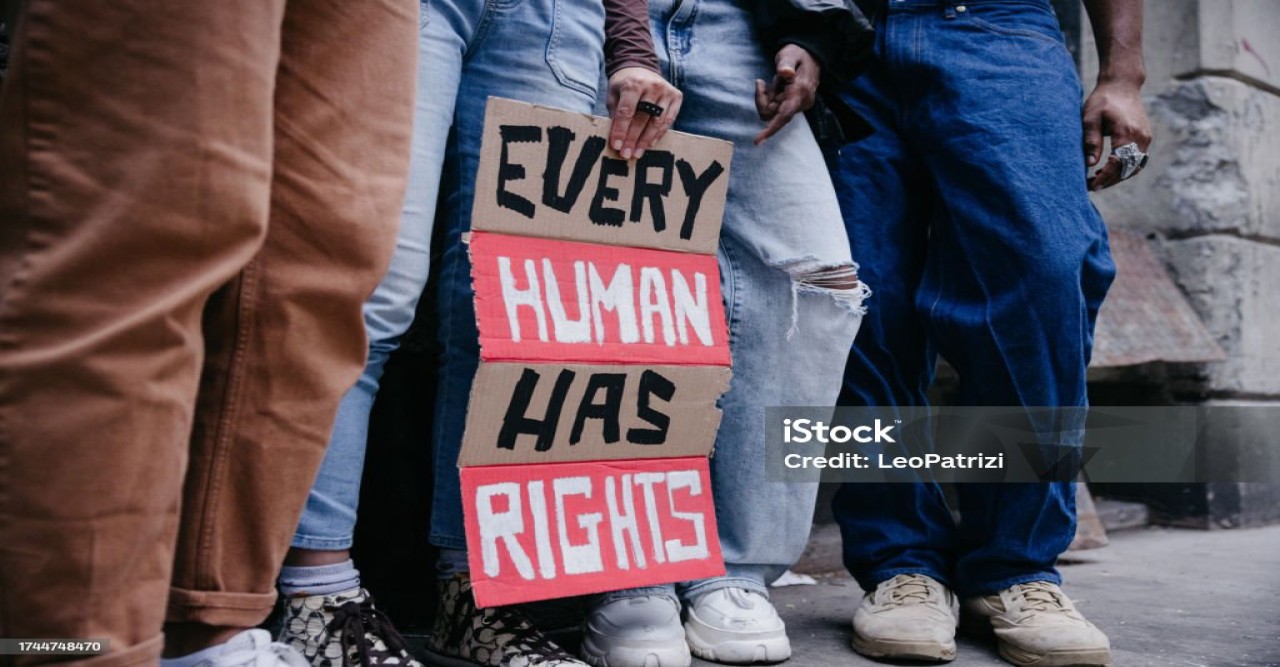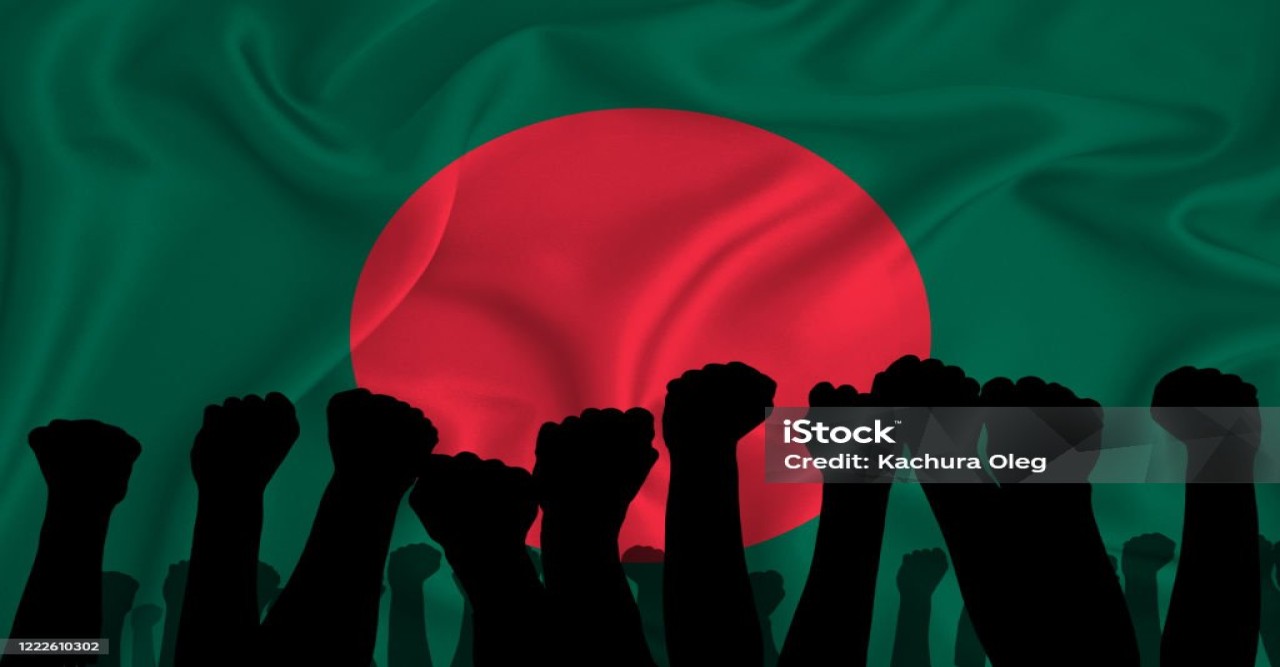
Ensuring the Right to Life in Bangladesh: Judicial Protection, Violations, and Reforms
খবর প্রকাশিত: ১৫ জুন, ২০২৫, ১২:১১ পিএম

Shaila Ahmed Senior Assistant Professor, Department of English, American International University-Bangladesh Dr. Syeda Afroza Zerin Associate Professor, Department of Law, American International University-Bangladesh.
Every year, Human Rights Day is observed with a specific theme that highlights a pressing human rights issue requiring global attention. Human Rights Day 2024 will have the subject "Equality for All: Reducing Inequality and Advancing Human Rights." The right to life is among the most essential and widely recognized human rights. The Universal Declaration of Human Rights (UDHR), the first international document to universally address human rights, articulates the right to life as one of its core principles. This declaration has had a profound impact, with 77% of the world’s constitutions recognizing the right to life. Article 1 of the UDHR declares that "all human beings are born free and equal in dignity and rights." It emphasizes the inherent equality of every individual. Article 3 states that "everyone has the right to life, liberty, and security of person." This supports the right to life even more. Article 5 emphasizes the significance of personal security and protection from harm by outlawing torture and cruel or humiliating treatment.  These three interrelated articles of the UDHR form the foundation of the philosophy surrounding the personal right to life and security. The International Covenant on Civil and Political Rights (ICCPR), in Article 6, reinforces that the right to life is inherent and should not be deprived arbitrarily. It mandates that no one shall be unlawfully deprived of their life. The Human Rights Act further asserts this right in its Article 2, stating that no one, including governments, has the right to end a person's life. It obligates governments to take appropriate measures to protect life and to consider this right when drafting laws. Interestingly, this text also makes it clear that the right to die is not a part of the right to life. In addition, the European Convention on Human Rights and Fundamental Freedoms (1950), in Article 2, offers strong protection for the right to life, specifying that death can only occur in exceptional circumstances, such as in cases of a death penalty lawfully imposed by a court of law for a serious crime. In summary, these international documents and legal frameworks collectively affirm the universal right to life and the responsibility of states to safeguard this fundamental human right for all individuals. The Constitution of Bangladesh adopts a progressive interpretation of the right to life, enshrining it within Part III, which outlines the fundamental rights of the citizens. These rights, as specified in Articles 8 to 47, are judicially enforceable, and the right to life is reinforced through the provisions of Articles 31 and 32.
These three interrelated articles of the UDHR form the foundation of the philosophy surrounding the personal right to life and security. The International Covenant on Civil and Political Rights (ICCPR), in Article 6, reinforces that the right to life is inherent and should not be deprived arbitrarily. It mandates that no one shall be unlawfully deprived of their life. The Human Rights Act further asserts this right in its Article 2, stating that no one, including governments, has the right to end a person's life. It obligates governments to take appropriate measures to protect life and to consider this right when drafting laws. Interestingly, this text also makes it clear that the right to die is not a part of the right to life. In addition, the European Convention on Human Rights and Fundamental Freedoms (1950), in Article 2, offers strong protection for the right to life, specifying that death can only occur in exceptional circumstances, such as in cases of a death penalty lawfully imposed by a court of law for a serious crime. In summary, these international documents and legal frameworks collectively affirm the universal right to life and the responsibility of states to safeguard this fundamental human right for all individuals. The Constitution of Bangladesh adopts a progressive interpretation of the right to life, enshrining it within Part III, which outlines the fundamental rights of the citizens. These rights, as specified in Articles 8 to 47, are judicially enforceable, and the right to life is reinforced through the provisions of Articles 31 and 32.
Equal protection under the law is guaranteed by Article 31 of the Constitution, which states that no one may be deprived of their life or personal freedom unless it is required by law. Article 32 further strengthens this protection, explicitly stating that no individual shall be deprived of their life or personal liberty except under legal procedures. Additionally, Article 35(5) safeguards individuals, both citizens and non-citizens against inhuman treatment or punishment, further affirming the Constitution's commitment to upholding human dignity and protecting fundamental rights. In summary, the Constitution of Bangladesh not only protects the right to life but also extends judicial enforceability to ensure these rights are upheld, with safeguards against arbitrary deprivation or inhuman treatment. The right to life, as enshrined in the Constitution of Bangladesh, has been widely interpreted and expanded through various judicial pronouncements by the Supreme Court. In the case of Saifuzzaman vs. State, the Court issued important guidelines concerning the arrest, detention, and remand of individuals. These guidelines are aimed at ensuring the protection of citizens' rights and preventing any violations of the right to life and personal liberty.
However, to ensure the protection of citizens' right to life and prevent violations, it is crucial to uphold democratic principles by holding the government accountable through fair and transparent elections. A strong democracy guarantees that the government acts in the best interest of its citizens, with a focus on safeguarding their fundamental rights. To prevent political interference in the functioning of state and constitutional institutions, it is essential to ensure their independence, allowing them to operate impartially and effectively. Law enforcement officers involved in criminal activities must face penalties equivalent to those applied to other criminals. Punishments should not be limited to transfer, demotion, or temporary suspension; instead, a fair and just legal process should be followed to hold them accountable for their actions. The government must also adhere strictly to the protocols outlined in the Convention against Torture and ensure the implementation of the Custodial Death (Prevention) Act, 2013, to prevent custodial deaths and ensure the protection of human rights within detention facilities.
In addition, to improve the performance of the judiciary in upholding citizens' right to life and liberty, it is necessary to fill the vacancies of judicial officers promptly and ensure that judicial processes remain efficient and accessible. Establishing an independent investigation process will further strengthen the judicial system's ability to address violations of human rights and deliver justice. Collaboration between law enforcement agencies, human rights organizations, NGOs, and society at large is vital for raising awareness and providing legal knowledge to citizens. This collective effort can contribute to a more informed public and a stronger commitment to ensuring the protection of the right to life for all individuals. Together, these initiatives can help create a safer, more just society that upholds the dignity and rights of life of every citizen.